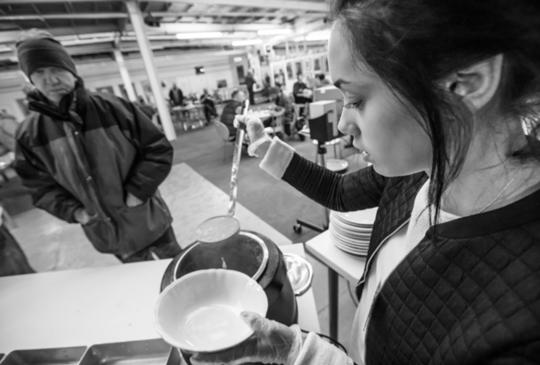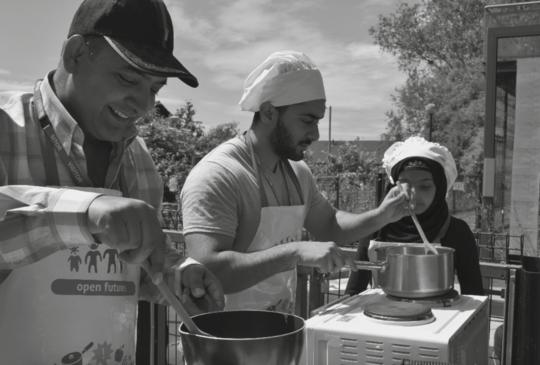
Health inequalities and shared responsibilities
The Oglesby Charitable Trust (OCT) is a Manchester-based charity that champions a range of social and cultural causes and which has established a track record in commissioning in-depth research and analysis across a range of issues critical for the future of Greater Manchester.
In 2013 it published its first report on health inequalities across the city region and, in the last month, it has released a timely successor report that offers a potential new template for tackling health problems, particularly for the poorest in the city region.
Now a second report from the OCT highlights the fact that in spite of improving productivity and prosperity, Greater Manchester still has longer-term health problems, disease and mental illness that are still so endemic for the poorest in the area, that they could, says the report, ‘choke productivity before it even starts’.
Health and wealth ‘are not trickling down’, the report states. The gap between the health and life expectancy of the poorest in our city region, compared to the most affluent, is increasing.
A baby boy born in Manchester today can expect to live a life seventeen years shorter than one born in an affluent area of London. For a baby girl the divide is little better, standing at fifteen years.
And here in Greater Manchester there is a local divide of ten years, between the richest and the poorest communities.
A baby boy born in Manchester today can expect to live a life seventeen years shorter than one born in an affluent area of London. For a baby girl the divide is little better, standing at fifteen years.
This gap is then replicated when a comparison is made between life expectancy here in Greater Manchester against the South. Since 1965 there have been 1.5 million more premature deaths in the North of England compared with the rest of the country.
Behind the statistics there will of course be individual stories of hardship and misfortune, but as the OCT’s 2013 report made clear, the impact of ill-health for the poorest 20 per cent of residents is felt far beyond their own homes and neighbourhoods. It has a dramatic impact on the £6 billion health bill that is currently being devolved into local control, and poor health also impacts on the £8 billion welfare costs seen across Greater Manchester. It also acts as a limitation on our general prosperity, and leads to higher levels of social division, exclusion and worklessness.
Collective responsibility
As Michael Oglesby, the chair of the trust, writes in his foreword to the report, the analysis has focused on how a collective responsibility could be taken in bridging the gap between the poorest and richest in society.
‘A healthy life is something we all have a right to expect,’ he writes. ‘But we can only enjoy it fully if we collectively accept responsibility and work together towards a healthy community.
‘It is clear that if we are to have a meaningful impact, there must be a shift in social attitudes. Over the last fifty years the accepted view has been that health is something others provide for you. In fact, everyone must take an active role in their health and wellbeing,‘ he continues.
The OCT’s earlier report in March 2013 was entitled ‘Tackling Inequalities in Health Outcomes in Greater Manchester’ and outlined the marked differences in life expectancy and wellbeing for poorer communities across the city region, and demonstrated that a new approach is needed to achieve a radical improvement in outcomes.
The main messages of the OCT’s 2013 report included the need for greater levels of individual ownership and personal responsibility for health. It also set out the wider social and economic consequences of ill-health and illustrated how inequalities threaten to limit Greater Manchester’s future prosperity as a whole.
The main messages of the OCT’s 2013 report included the need for greater levels of individual ownership and personal responsibility for health. It also set out the wider social and economic consequences of ill-health and illustrated how inequalities threaten to limit Greater Manchester’s future prosperity as a whole.
This second report, based on extensive research and analysis, addresses a critical question posed in the first report: how can the people of Manchester be encouraged to take greater ownership for their health outcomes? If lifestyle and behavioural choices are critical factors driving present and future health outcomes, then this is a key question – one brought sharply into focus by NHS Chief Executive Simon Stevens’ call to reinvent health as a ‘social movement’ with personal responsibility at its heart.
This revolution in responsibility is no easy ask in our most deprived areas and, as the report outlines, this shift can only be brought about if it is led by groups rooted locally in the communities where change needs to happen the most.
Learning from what works
This finding is what led to the OCT decision to commission research into what works, practically, at a community level. Two years of extensive research (by Millar Consulting) was carried out across more than 400 projects, out of which 20 in-depth case studies were developed. These reveal successful approaches to addressing health inequalities, often at a community level.
The learning uncovered arrives at an opportune time, as Greater Manchester is preparing its strategic response to a devolved health budget, when sector reforms are driving forward the integration of health, social and mental care. Demands and expectations for services are growing, as our city region seeks to deliver the promise of what’s been called the ‘Northern Powerhouse’.
The case studies that form the bedrock of the research have shown the importance of:
- Safe places. People need to be safe and a sense of belonging is key to thriving. Good projects are often rooted in communities and ‘place’.
- Seeing the whole person. Understanding people’s values, choices and stories is just as important as diagnosing their condition.
- Strengthening connections to others. People are social and an understanding of their social context and strengthening relationships is often essential to recovery.
- Giving control back to the individual. Fostering a sense of action and control over people’s future, including their health.
- The vision of a healthy future. Building a person’s vision of what a healthy future could look like for them.
The research covered groups and individuals who had a sustainable, positive impact on health outcomes, with approaches that complement mainstream public health services and are working effectively alongside them. It showed that small, inexpensive but significant changes to public service approaches would greatly increase the capacity, reach and impact of these groups
The report’s main recommendations, to leaders across the city region but also to groups and individuals who have the opportunity to tackle the causes of ill health are to:
- Adopt a new person-centred approach to health. This positions people as producers of their own health, as well as consumers of health services.
- Align relationships with local institutions and energise neighbourhood networks to unlock additional routes to good health.
- Help commissioners and social services support this approach.
- Use e-health technologies to create an ‘enabling effect’ for people and patients.
- Foster a shared responsibility for health, and for helping others.
Nationally there is a recognition that the projected financial savings needed to ensure we can meet the future demands for NHS services will be hard to find. NHS England has argued that it could deliver productivity improvements of £22 billion but would require £8 billion a year of additional funding by 2020/21 simply to meet projected increases in demand and changes in medical technology.
The £6 billion of health spending devolved to Greater Manchester under the so-called ‘DevoManc’ agreement will similarly be a strained and challenged resource. The challenge for Greater Manchester will not be about reducing services but about reinventing the way we deliver health and wellbeing, given this unique opportunity to dictate our own course of action.
95 per cent of our health resources being deployed as ambulances at the bottom of the cliff, with only five per cent of resources being used to build fences at the top.
As set out in the Trust’s 2013 report, we find ourselves with a healthcare system where the vast majority of funds are dedicated to treating the symptoms and not the causes of poor health. The analogy used was of 95 per cent of our resources being deployed as ambulances at the bottom of the cliff, with only five per cent of resources being used to build fences at the top.

This second OCT report is based wholly around a study of projects and initiatives in Greater Manchester and across Britain that are transforming health outcomes in powerful ways, usually at a community or individual level.
Together these offer insights to form a template for approaches that will yield further health gains in the future.
With extremely modest budgets compared to our multi-billion pound NHS, successes are being made on mental health, sexual health, obesity, dementia, physical activity and a number of other critical problem areas by a range of partnerships, charities and community groups. Together these offer insights to form a template for approaches that will yield further health gains in the future.
Case study: Top sports clubs boost community health.
Leading sports clubs are highly influential, particularly in disadvantaged areas, and have a unique opportunity to leverage their reputations to improve health and wellbeing. Many organisations across Greater Manchester, including Manchester City Football Club and Lancashire County Cricket Club Foundation, deliver effective programmes of physical activity and healthy eating that impact positively on local communities. Given their status in the deprived communities, they have the potential to do far more.
Case study: Love4Life empowers vulnerable girls through education
Love4Life is a Leicester-based initiative that supports vulnerable girls at risk of pregnancy and abuse through empowerment, education and a healthy self-image. The scheme demonstrates the power of practical, grass-roots interventions, and has led to a fall in anti-social behaviour and an increase in awareness of healthy relationships.
Case study: Home-Start North Manchester helps parents take control over health
Home-Start North Manchester helps parents in deprived communities build healthier lives for their children by drawing on the expertise of volunteers. The cost-efficient initiative enables families to take control over factors that determine health, building long-term resilience.
Case study: Place2Be fosters resilient mental health among children
Working in a Moss Side primary school, national charity Place2Be uses early interventions to build mental resilience and wellbeing among children. Offering counselling and therapy, the scheme has seen impressive results in a school where many pupils have experienced severe emotional trauma.
Case study: Explore and StraightTalking use real-world experience to engage teenagers
Explore is a charity that educates students about the reality and value of long-term relationships by inviting volunteer couples to share their insights. Straight Talking is a small but highly effective organisation that draws on the powerful real-world experiences of teenage parents to communicate realistic messages about sex and relationships. Both schemes draw on authentic, engaging, lived experiences to demonstrate benefits to physical, sexual and mental health.
Case study: Mustard Tree helps marginalised people back into society
Mustard Tree is a charity committed to providing life support for homeless and marginalised people across Greater Manchester, by providing constructive pathways back into society and good health. Through offering a respectful and non-judgemental space where everyone is encouraged to work and contribute, the charity empowers clients to improve their own lives and through that, the lives of those around them.
Case study: Manchester Communication Academy and community health
Manchester Communication Academy goes beyond the traditional requirements of a school by acting as a central community hub for students and residents, prioritising their health and wellbeing. Local groups use the facilities for physical activities and cookery sessions, while pupils’ health is considered to be as important as academic achievement.
Case study: OnSide Youth Zones nurture good health
OnSide Youth Zones are designed to give young people somewhere to go, something to do and someone to talk to; occupying their bodies and minds with fun activities, learning new skills and socialising in a safe, positive way. Currently OnSide has established five Youth Zones based on the model of the successful Bolton Lads and Girls Club in Blackburn, Carlisle, Wigan, Manchester and Oldham. A further three Youth Zones have been given the green light, including the first in London. The latest facility set to open in January 2016 is Wolverhampton Youth Zone.
Case study: Salford Heart Care
Salford Heart Care, an organisation founded, run and led by volunteers, supports people with heart-related problems, as well as their carers and families. The successful service offers essential, practical help and encouragement after hospital care ends.
Case study: Promoting healthy eating at Cheetham Primary Academy
Cheetham Primary Academy takes an holistic approach to health and nutrition through a number of cookery and healthy eating programmes. The school has stimulated healthier attitudes towards food as well as promoting stronger relationships by working with families, often in the school, and reaching out to the wider community.
Investing in a healthier future
As Greater Manchester prepares its plan for devolved health, the successful approaches outlined in the OCT report could, the trust suggests, be supported, replicated and amplified across the region. A modest investment in projects or initiatives such as these would, it states, pay huge dividends and help to prevent our £6billion health budget from being overwhelmed. It will also, of course, help the very poorest in society.
The OCT is also calling for a city-wide, ‘hearts and minds’ campaign that stresses the importance of taking responsibility, at an individual and a neighbourhood level, for the health of ourselves and those around us: a clear plan and a shared conversation which the Greater Manchester Combined Authority is well-placed to lead.
Main and inline images of the Mustard Tree’s work by Tony West. Lower image of healthy food projects at the Cheetham Primary Academy.
Public Health and the Great Green Uplift of our Urban Ecosystem
Contributed by Steve Merridew
Contributor Profile
Steve is co-founder and CEO of Creative Concern. He specialises in ethical and sustainability issues, integrated campaigns, city strategies, brand development and creating strange installations out of trees, lights and beautiful type. Particular areas of expertise include climate change, place making, transport, food issues and the natural environment.






